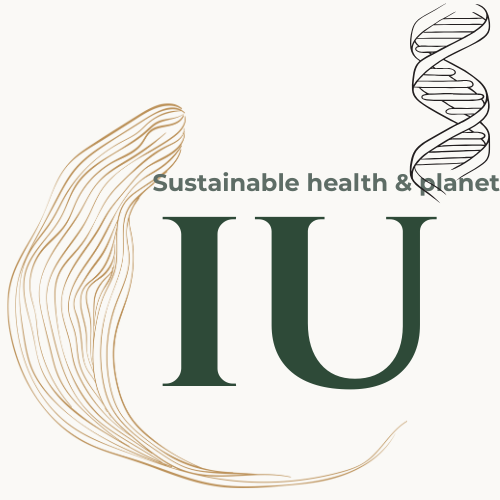Optimising skin health and Vitamin D production through food: a science-based guide
It’s August, the heart of summer, and many of us are soaking up the sun on vacation or simply enjoying long, sunny days. We all know sunscreen is key to protecting our skin, but did you know that what you eat can be just as powerful in helping your skin stay radiant and boosting your body’s vitamin D production?
Let me take you through a simple, delicious way to nourish your skin from the inside out—backed by science, inspired by nature, and grounded in local, seasonal foods.
Why your skin needs more than sunscreen
Imagine your skin as a living shield that not only protects you from the sun but also works as a little vitamin D factory. When UVB rays hit your skin, it triggers the production of vitamin D—a nutrient essential for strong bones, a healthy immune system, and even mood regulation. But here’s the catch: too much sun can damage your skin cells, speeding up aging and causing inflammation.
That’s where nutrition steps in. Certain vitamins and minerals act like bodyguards for your skin, defending it from oxidative stress caused by the sun, while others help your body make the most of the sunlight it gets.
Meet your skin’s best friends: Micronutrients that matter
Vitamin D:
Besides catching some safe sun, you can boost your vitamin D by enjoying oily fish like salmon or mackerel— a quick baked salmon fillet with a squeeze of lemon, paired with a fresh cucumber and dill salad. If you prefer plant-based options, fortified plant milks or mushrooms exposed to sunlight are great too.
Vitamin C:
This antioxidant is your skin’s collagen builder, helping keep it firm and elastic. Snack on some juicy strawberries, or toss cherry tomatoes and red bell peppers into a light quinoa salad with fresh parsley and a drizzle of olive oil. Easy, fresh, and packed with vitamin C.
Vitamin E and Selenium:
These nutrients protect your skin cells from damage. Sprinkle some toasted sunflower seeds, Brazil nuts or almonds over your morning oatmeal or enjoy a handful as a snack.
Zinc:
Known for its role in skin repair, zinc is found in pumpkin seeds and legumes. A quick chickpea hummus with carrot sticks or whole grain crackers is a delicious, zinc-rich treat. A great news to oyster lovers - they’re among the riches sources of zinc!
Omega-3 Fatty Acids:
Oily fish again shines here, but you can also get omega-3s from flaxseeds, chia seeds and walnuts. Try blending a smoothie with spinach, flaxseeds, a banana, and a splash of almond milk—a refreshing, skin-loving drink on a warm day.
Polyphenols:
These plant compounds are powerful antioxidants found in local berries, green tea, and dark chocolate. Brew a cup of green tea or - even better - matcha, or enjoy a small piece of high-quality dark chocolate to help fight photoaging.
Magnesium:
Vital for activating vitamin D, magnesium is present in leafy greens and nuts. A simple spinach and walnut salad with a citrus dressing is a perfect quick dish to keep your skin glowing.
Simple seasonal meal ideas to nourish your skin and not spend too much time in the kitchen:
Baked salmon with cucumber-dill salad: A 20-minute dinner packed with vitamin D, omega-3s, and refreshing antioxidants.
Quinoa salad with cherry tomatoes, red peppers, parsley, and olive oil: A light, vitamin C-rich lunch you can prepare in advance.
Spinach, walnut & citrus salad: Perfect for a quick nutrient boost.
Chickpea hummus with carrot sticks: A zinc-rich, satisfying snack on the go.
Green or matcha tea with a small piece of dark chocolate: A delicious way to protect your skin while enjoying a moment of relaxation.
Eating local & seasonal: good for you, good for the planet
Choosing local, seasonal foods not only packs your meals with fresher, more nutrient-dense ingredients but also supports sustainable farming and reduces your carbon footprint. It’s a small but powerful way to align your personal health with global goals for sustainable development and food security.
This August, let your plate be part of your skincare routine. By combining smart sun habits with nutrient-rich, delicious meals, you’ll help your skin glow and your body optimize vitamin D naturally.
Ready to take this deeper? Check out my personalized coaching programs designed to help you unlock your best health, sustainably and scientifically.
